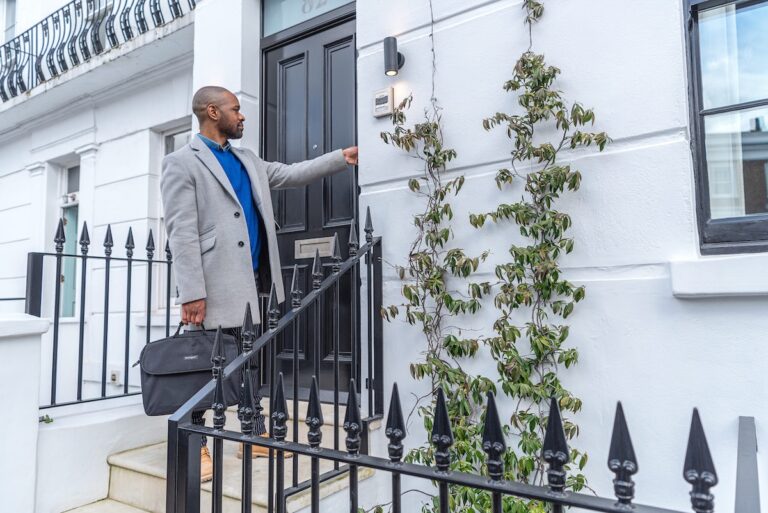As attention turns to the new year and with it, new resolutions and ambitions for growth, many SME business owners are also turning their attention to how best to manage costs to achieve those resolutions and ambitions, particularly if a growth strategy requires travel.
Reassuringly, there are a number of ways to effectively manage corporate accommodation and travel costs so that SMEs have more scope for investment elsewhere, in order to seek growth in new markets either with new clients or suppliers.
Here James Buckley, CFO from SilverDoor, the leading provider of serviced apartment and corporate  accommodation for business travellers, offers insights and advice on how to achieve just that.
accommodation for business travellers, offers insights and advice on how to achieve just that.
Understand local tax guidelines in the locations you are booking
For many locations now, particularly in North America, as legislation over short-term rentals is changing, so too are the tax laws. Important to keep in mind when planning budgets and trying to save costs. Understanding these local differences and knowing how and where to adjust your trip length could make a significant impact on saving costs and reducing your yearly spend. Take for example, Washington DC, where a short-term rental is defined as a stay of 90 days or less with a 15.95% tax for such stays. If you are planning to book a trip of 79-90 days here, consider adding extra nights to make it 91+ days, thereby avoiding paying the high short-term rental tax rate and reducing the overall trip cost.
Ensure your loyalty is rewarded
Many accommodation providers operate loyalty programmes that offer discounts and upgrades as rewards for businesses that are frequent bookers and serviced apartment loyalty programmes offer comparable benefits with those offered by hotels so be sure to check both. If you are going to a particular destination on a regular basis, earning points with every trip which can then be redeemed against the accommodation cost, ensures each and every trip becomes more cost effective. Before selecting an accommodation provider take the time to research their loyalty scheme to see which offers the best rewards value. Rewards can also include waived pet fees and free late check-outs so bear in mind it is possible to make savings beyond just discounted nightly rates.
Policies and pre-approval prevent profit loss
When planning any trip, either locally or internationally, it’s important to have a robust policy in place for employees in terms of budget limits for accommodation and other travel costs. Traveller compliance will only be possible if these policies are clearly communicated to staff so everyone has a clear understanding of budgets available to them.
Consider implementing an efficient pre-approval process, where staff must seek approval for travel and accommodation expenses before making a booking if it is above a certain limit for example. This can help to manage travel costs and check they stay within budget. However, if approval processes are too long you can run the risk of missing out on discounted rates. With this in mind, take a balanced approach to any pre-approval processes you do have in place such that whilst employees are informed about the rules in place to keep costs and budgets in check, in the case of regularly booked locations within a certain price bracket, it might be more appropriate to trust your employees to go ahead and book without the need to wait for approval and secure those lower rates.
Plan ahead
As with loyalty programmes, if you are expecting to travel on a regular basis to a particular destination, make that regularity work for you by forward planning and booking trips in advance. Planning ahead often results in lower rates for accommodation and other travel costs, including airfares and train travel. Advance planning means you can secure savings and manage your business budget more effectively and with a longer-term view.
Consider accommodation beyond city centres and transport hubs
When travelling for business, clients tend to opt for a popular, city centre location because it is often more familiar. However, this may not always be the cheapest option. It is always worth researching locations of offices and other commitments planned during the stay first, then looking at accommodation and transport routes out from there. Take a holistic view of trip expenses and consider both the cost and experience benefits of booking in a cheaper location outside the city centre: the commute may be slightly longer, but accommodation rates will generally be lower and corporate guests can avoid busy tourist hubs.
Stay flexible with travel dates to avoid seasonal spikes
Accommodation can see rises in rates during high season and periods when major events are taking place. To mitigate against this, it’s good practice to maintain a flexible approach to managing your travel and if you can, book trips that fall out of high season to help reduce accommodation costs and save. If you do have to travel in peak season, then if viable, opting for accommodation beyond city centres might help offset some of these costs.
Negotiate to accumulate
In the same way as ensuring you are getting the best value return on any loyalty programmes, make sure you are  also getting the best value on your booking and rates. Whether you are a new customer to an accommodation provider or an existing and loyal customer, consider appointing an agent to apply some buying power to request upgrades, complimentary breakfast and potentially reduced rates. Again, if you know either yourself or colleagues within the business will be travelling regularly to the same places meaning you can commit to more future bookings, an accommodation agent will be in a better position to negotiate preferential terms, corporate rates and other added benefits on your behalf.
also getting the best value on your booking and rates. Whether you are a new customer to an accommodation provider or an existing and loyal customer, consider appointing an agent to apply some buying power to request upgrades, complimentary breakfast and potentially reduced rates. Again, if you know either yourself or colleagues within the business will be travelling regularly to the same places meaning you can commit to more future bookings, an accommodation agent will be in a better position to negotiate preferential terms, corporate rates and other added benefits on your behalf.
Put group bookings to work
Larger group bookings also qualify for greater buying and negotiating power. If a larger number of staff are flying out to the same destination on a regular basis or attending an industry conference or event, just like advance bookings can secure lower rates, larger group bookings can often deliver discounts, which can then significantly reduce the cost per head of any trip.
Book the right travel for your business and budget needs
If you are planning investment and growth in a particular region and arranging longer corporate trips to achieve that, often serviced apartments and longer-term rental accommodation can be more practical and cost-effective. With the added benefit of amenities like laundry and kitchen facilities, serviced apartments not only offer a more ‘home-from-home’ feel that can enable staff to feel more settled, but can also reduce costs with the option to cook and save on F&B costs, when compared to dining out every day.
End-of-trip reporting
The end of any business trip is an opportunity to review itineraries and spend to better inform and plan budgets for future trips. Instilling a regular review of accommodation and travel spend, monthly or quarterly as well as year-end, can ensure you are keeping a close eye on costs and are therefore better qualified to determine if and how changes to itineraries and policies can be made so that further cost savings can be achieved. Likewise reports and data on travel costs can also inform conversations with accommodation and travel providers when negotiating and booking future travel to drive even further cost savings.
For more information on how serviced apartments can support your corporate travel programme please visit: silverdoor.com

